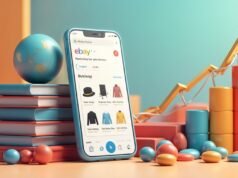The United Kingdom stands at the frontier of a healthcare revolution, and mobile health (mHealth) is leading the charge. The NHS (National Health Service) — long regarded as one of the world’s most robust public health systems — is embracing digital transformation through the strategic deployment of mHealth solutions. From digital triage systems to remote patient monitoring, mobile apps are rapidly becoming an indispensable part of patient care, clinician workflows, and public health strategies.
However, with innovation comes regulation. In a landscape as sensitive and high-stakes as healthcare, NHS compliance is non-negotiable. For any healthcare app to be trusted, adopted, and scaled across the UK, it must meet stringent standards related to safety, privacy, usability, and data interoperability.
This blog delves into the evolution of mHealth in the UK, explores the nuances of building NHS-compliant mobile apps, and highlights how partnering with a top-tier healthcare app development company and trusted app developers in the UK can help navigate this complex but highly rewarding domain.
The Rise of mHealth in the UK
The global mHealth market is growing rapidly, and the UK is no exception. Factors contributing to the rise include:
- COVID-19’s acceleration of digital health adoption
- Increasing smartphone penetration and tech literacy
- NHS Digital and NHSX pushing for digital-first care models
- A focus on reducing burden on hospitals and GP practices
From apps helping manage diabetes and mental health to AI-driven diagnostic tools, the landscape is rich and expanding.
Notable examples:
- NHS App: A gateway for booking GP appointments, viewing health records, and ordering prescriptions.
- Babylon Health: Offers AI-powered symptom checking and virtual consultations.
- myCOPD & Sleepio: Accredited digital therapeutics (DTx) solutions prescribed by NHS providers.
These aren’t just conveniences—they’re integrated digital healthcare tools, requiring technical rigor, clinical safety, and regulatory alignment.
What Does It Mean to Be NHS-Compliant?
To be NHS-compliant, an app must adhere to multiple layers of standards, including:
1. NHS Digital Standards
Apps must meet technical, clinical, and data governance benchmarks. This includes:
- Interoperability (e.g., integration with GP Connect)
- NHS login and identity verification
- Digital Technology Assessment Criteria (DTAC)
2. UK Data Privacy Laws (UK GDPR)
All health data is sensitive. Apps must:
- Obtain informed consent
- Use encrypted transmission
- Store data securely
- Provide user transparency and control
3. Medical Device Regulation (MHRA)
If the app offers diagnosis, prevention, or treatment functions, it may qualify as a medical device and require MHRA certification.
4. NICE Evidence Standards Framework
Apps aiming to influence clinical decision-making must provide:
- Clinical evidence of safety and efficacy
- Economic evidence showing cost-effectiveness
Working with a healthcare app development company familiar with these layers ensures smoother approvals and adoption.
Features of a Modern, NHS-Compliant mHealth App
Whether you’re developing a patient-facing app or a clinical tool, certain features are increasingly expected in UK healthcare mobile apps:
1. NHS Login Integration
Secure authentication using NHS Login enables centralized access to official health records and services.
2. EHR & GP Connect Integration
To truly support the NHS, apps should integrate with Electronic Health Records (EHRs), allowing seamless clinician-patient data flow.
3. AI-Driven Triage & Monitoring
Integrating AI symptom checkers, personalized health prompts, or chronic disease tracking helps reduce GP load while improving outcomes.
4. Accessibility & Inclusivity
Apps must comply with WCAG 2.1 AA standards to support users with disabilities or language barriers.
5. Secure Messaging & Telehealth
Enabling encrypted communication and video consultations has become vital for continuity of care.
6. Offline Functionality & Device Sync
Not all patients have constant internet access—offline sync and compatibility with wearables are key.
Partnering with experienced app developers in the UK ensures these features are not only implemented but also localized for UK healthcare pathways.
Benefits of NHS-Compliant mHealth Apps
The investment into NHS-compliant mHealth apps yields multi-dimensional returns:
For Patients:
- 24/7 Access to Care: Booking, messaging, symptom checks—all available on-demand.
- Personalized Health Journeys: AI and analytics recommend relevant next steps or care plans.
- Improved Engagement: Mobile apps increase medication adherence and health tracking.
For Clinicians:
- Time-Saving Tools: Automated intake forms, vitals tracking, and patient history reduce admin load.
- Better Decision-Making: Instant access to data and risk models boosts clinical accuracy.
For the NHS:
- Cost Efficiency: Reduced appointments, shorter hospital stays, and lower readmission rates.
- Improved Public Health: Data aggregation enables better planning and crisis response.
- Scalable Innovation: Apps can be rapidly updated and distributed nationwide.
The Role of Healthcare App Development Companies
The path to building a successful NHS-compliant app is complex. That’s why NHS trusts, medtech startups, and research institutions often collaborate with specialized healthcare app development companies.
Here’s what these firms bring to the table:
1. Domain Expertise
They understand healthcare workflows, stakeholder requirements, and integration needs—accelerating development cycles.
2. Compliance Knowledge
Experienced firms are already familiar with DTAC, UK GDPR, MHRA, and NHS integration protocols.
3. Security-First Development
Healthcare data is a high-value target. These companies implement:
- End-to-end encryption
- Role-based access
- Secure APIs
- Regular penetration testing
4. Agile Development and Testing
Rapid prototyping, feedback loops, and user testing ensure usability, safety, and iterative innovation.
5. Post-Launch Support
Ongoing compliance updates, bug fixes, and feature improvements are part of a long-term roadmap.
In short, working with a reputed healthcare app development company is the fastest, safest route to digital success.
Why Choose Local App Developers in the UK?
While outsourcing may seem cheaper, the stakes in mHealth demand deep local context—something only app developers in the UK can offer.
Advantages:
- Understanding of NHS infrastructure
- Real-time collaboration with UK-based health professionals
- Faster resolution of legal and compliance hurdles
- Adherence to accessibility and design guidelines suitable for UK populations
Local development partners also better understand patient behavior, regional languages, and device usage preferences—resulting in apps that actually get used.
Real-World Success Stories
1. SkinVision
The NHS has piloted this app to help users self-assess skin lesions using AI. While not a diagnostic tool, it supports early detection.
2. Liva Healthcare
Used by NHS trusts to provide digital coaching for diabetes and obesity management, integrating real-time feedback and remote monitoring.
3. GoodSAM
An emergency response app integrated with NHS ambulance services, helping coordinate faster intervention during cardiac arrests.
These apps showcase how mHealth—when well-designed, regulated, and integrated—can literally save lives.
The Future of mHealth in the UK
Here’s what we can expect in the next phase:
1. AI-First, Not Just Mobile-First
Apps will evolve into intelligent companions—predicting health needs, flagging anomalies, and coordinating care.
2. Interoperability as Standard
One patient, one record. NHS’s push for unified health data will make cross-app and cross-provider integration mandatory.
3. Digital Therapeutics (DTx) Approval
The UK will follow Germany and the US in approving and reimbursing mobile apps as “prescription-grade” therapeutics.
4. 5G & IoT Expansion
Ultra-fast connectivity will enable remote surgeries, smart ambulances, and real-time diagnostics via mobile.
5. Wearable & Voice Integration
Seamless sync with smartwatches, home assistants, and biometric devices will drive proactive, ambient healthcare.
These trends will redefine what it means to be an app developer in the UK’s healthcare sector—bringing software and care closer than ever.
Conclusion
The future of mHealth in the UK is not just mobile—it’s intelligent, secure, and fully integrated into the fabric of public healthcare. For startups, clinicians, and healthcare providers looking to make an impact, the opportunity is enormous—but so are the stakes.
Building NHS-compliant mHealth apps requires deep technical knowledge, regulatory alignment, and domain fluency. That’s why collaboration with an expert healthcare app development company and seasoned app developers in the UK is essential.
As the NHS continues its journey toward digital-first care, the next wave of health innovation won’t come from hospitals or clinics alone—it’ll come from mobile apps in the palm of your hand.








[…] datasets are clean, diverse, and ethically sourced. This is especially crucial in industries like healthcare and finance where precision is […]